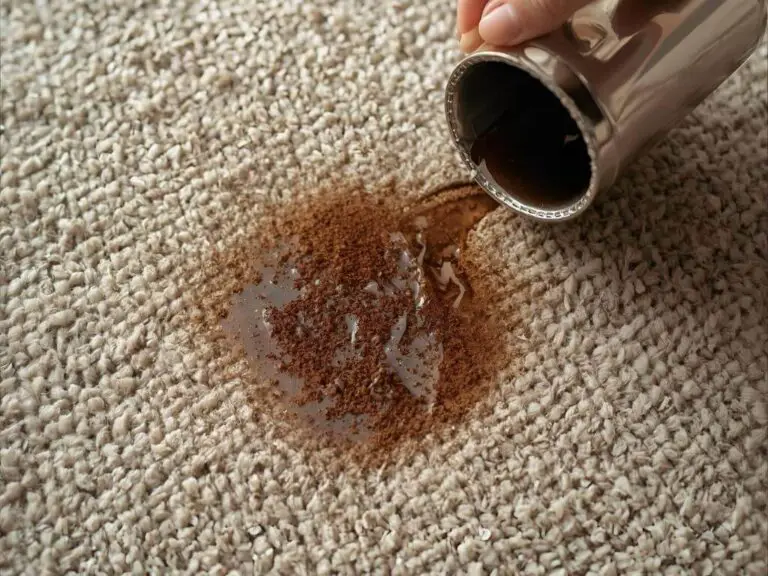Is Decaf Coffee Bad for You or a Smart Choice? Let’s Find Out!
Love coffee but hate the jitters? You’re not alone. Many people switch to decaf hoping it’s the healthier, calmer choice — but that question keeps popping up in search bars and kitchen chats: is decaf coffee bad for you?
Let’s be clear from the start: decaf is not a mysterious poison nor a perfect health elixir. It’s simply coffee that has had most of its caffeine removed. In this article I’ll walk you through what decaf actually is, how it’s made, the real health benefits and risks, and how to pick a safe, tasty decaf. Expect science-backed facts, simple language, and helpful tips you can use the next time you buy beans. No jargon. No judgment. Just the truth — brewed and served warm. ☕✨

What Exactly Is Decaf Coffee? — Simple Facts You Can Trust
Short answer: Decaf coffee is regular coffee with most of its caffeine removed — but it still contains a little (usually 2–5 mg per cup). It gives you the flavor and ritual of coffee with much less stimulation.
Why people choose decaf
- They’re sensitive to caffeine (anxiety, fast heart rate).
- They want a night-time cup without losing sleep.
- Pregnancy or medical advice limits caffeine intake.
- They like the taste but prefer less buzz.
Quick feature table — Regular vs Decaf
| Feature | Regular Coffee | Decaf Coffee |
|---|---|---|
| Caffeine | ~70–140 mg per cup | ~2–5 mg per cup |
| Taste | Bold, fuller body | Milder, sometimes smoother |
| Antioxidants | Slightly higher | Slightly lower but still present |
| Best for evenings | ❌ May disturb sleep | ✅ Better choice |
Did you know? Even though decaf has much less caffeine, it’s not totally caffeine-free — so if you’re extremely sensitive, one decaf cup could still matter.
How much caffeine is left?
- A typical decaf cup contains about 2–5 mg of caffeine, compared with 70–140 mg in a regular cup (varies by roast, grind, and serving size).
- For comparison: a can of cola has ~30–40 mg, and some energy drinks have much more.
How Is Coffee Decaffeinated? (And Is It Safe?) 🔬💧
So, how exactly do coffee makers take the caffeine out of your favorite beans? It’s not as magical as it sounds — it’s science! 🧪
Decaffeination happens before roasting, and the goal is to remove most of the caffeine while keeping the flavor intact. There are a few methods used worldwide, and each one affects both taste and safety a little differently.
Let’s break them down 👇
⚗️ Common Decaffeination Methods
| 🧾 Method | ☕ How It Works | 🧴 Chemical-Free? | 💬 Taste Retention |
|---|---|---|---|
| Swiss Water Process | Uses pure water and osmosis to gently draw caffeine out of beans. | ✅ Yes | Moderate — smooth, clean taste |
| CO₂ Process | Pressurized carbon dioxide pulls caffeine from the beans. | ✅ Yes | Excellent — keeps aroma and flavor |
| Solvent-Based (Methylene Chloride or Ethyl Acetate) | Beans are soaked in a chemical solvent that dissolves caffeine. | ❌ No | High — flavor preserved, but chemical use involved |

Health Benefits of Decaf Coffee ☕🌿
If you’ve been wondering “is decaf coffee bad for you,” here’s some good news — it’s actually packed with benefits! Just because the caffeine is mostly gone doesn’t mean all the goodness is too.
Let’s explore what makes decaf a surprisingly healthy choice 👇
🌱 1. Still Full of Antioxidants
Decaf coffee keeps many of the same antioxidants as regular coffee — like polyphenols and hydrocinnamic acids.
These powerful compounds help:
- Reduce inflammation 🔥
- Fight cell damage 🧬
- Support overall heart and brain health ❤️🧠
So, even if antioxidant levels are slightly lower in decaf, you’re still getting a nice daily dose of wellness.
😌 2. Better for Anxiety and Sleep
If caffeine makes your heart race or keeps you up at night, decaf is your best friend.
- Less caffeine = calmer nerves and steady heart rate.
- You can enjoy a warm evening cup without counting sheep later. 🌙
💓 3. May Lower Risk of Heart Disease and Type 2 Diabetes
Several studies suggest that both decaf and regular coffee drinkers may have a lower risk of heart disease and type 2 diabetes.
The reason? Coffee’s natural compounds improve how your body uses insulin and support healthy blood vessels.
So even without caffeine, decaf can still be heart-smart ❤️
🌿 4. Gentler on the Stomach
Decaf tends to be easier on sensitive stomachs because it has less acid and fewer compounds that trigger heartburn or irritation.
Tip: Choose a medium roast or low-acid decaf coffee if you often experience stomach sensitivity.
💤 5. Perfect for Evening Coffee Lovers
Want that cozy night-time coffee ritual without losing sleep?
Decaf gives you the taste and comfort of coffee minus the restless night. ☕🌙
✅ Quick Recap:
| 🩺 Health Perk | 💬 What It Does for You |
|---|---|
| Antioxidants | Protects cells and reduces inflammation |
| Low Caffeine | Improves sleep and reduces anxiety |
| Heart & Metabolism Support | May lower risk of diabetes and heart disease |
| Stomach Friendly | Easier on digestion and acidity |
So far, the verdict is clear — decaf coffee isn’t bad for you at all. In fact, it’s a smart, balanced way to keep your coffee habit healthy.
Possible Risks and Concerns — What You Should Know 🧐
While decaf coffee has plenty of perks, no drink is totally perfect. If you’ve ever wondered, “is decaf coffee bad for you in any way?” — here’s the honest answer: it can have a few minor downsides, but most depend on the quality of the coffee and how much you drink.
Let’s look at the possible risks 👇
🧪 1. Chemical Residues (in Low-Quality Brands)
Some cheaper decaf coffees are made using solvents like methylene chloride or ethyl acetate to strip caffeine from the beans.
- These chemicals are FDA-approved and used in very small, safe amounts, but poor-quality processing might leave traces.
- While it’s unlikely to cause harm, many coffee lovers prefer chemical-free methods like Swiss Water Process or CO₂ Decaf.
👉 Pro Tip: Always check the label — look for “Swiss Water Process” or “CO₂ Process” for peace of mind.
🧬 2. Slightly Lower Antioxidant Levels
During decaffeination, a small portion of antioxidants is lost.
That said, decaf still provides a strong antioxidant punch — enough to support your immune system and reduce inflammation.
In short, you’re missing a little of the goodness, not all of it. 💪
☕ 3. Coffee Compounds Can Still Affect Some People
Even without caffeine, decaf still contains other natural coffee compounds, like acids and oils.
These may cause mild issues for some:
- Stomach sensitivity or acid reflux
- Slight cholesterol changes (if brewed unfiltered)
If you have a sensitive stomach, try cold brew decaf or low-acid beans.
🩺 4. Overconsumption Concerns
Even healthy drinks can backfire when overdone.
Too much decaf (like 5–6 cups daily) might lead to:
- Increased stomach acid
- Slight dehydration
- Overreliance on additives (sugar, creamers, etc.)
Moderation is key — 2 to 3 cups per day is ideal for most people. 🕊️
💡 Quick Recap Table:
| ⚠️ Potential Risk | 💬 Details | ✅ Safe Solution |
|---|---|---|
| Chemical residue | Found in low-quality decafs | Choose Swiss Water or CO₂ Decaf |
| Fewer antioxidants | Small loss during processing | Eat fruits/veggies + drink quality coffee |
| Stomach sensitivity | Acids or oils may cause reflux | Try low-acid or cold brew decaf |
| Drinking too much | May cause mild dehydration | Limit to 2–3 cups daily |

Decaf Coffee vs. Regular Coffee — Which Is Healthier? ☕ vs ☕
When comparing decaf and regular coffee, it’s not about good vs. bad — it’s about finding which one fits your body and lifestyle better.
So if you’re still wondering “is decaf coffee bad for you compared to regular coffee?” — the truth is, both have benefits depending on what you need.
Let’s break it down 👇
☕ Side-by-Side Comparison
| 💡 Factor | Regular Coffee | Decaf Coffee |
|---|---|---|
| Caffeine | High (70–140 mg per cup) | Very Low (2–5 mg per cup) |
| Antioxidants | Slightly higher | Slightly lower |
| Sleep Impact | May cause restlessness | Sleep-friendly |
| Anxiety / Heart Rate | Can increase for sensitive people | Minimal effect |
| Safe for Pregnancy | In moderation | Safer option |
| Taste | Bolder and stronger | Milder, smoother |
| Digestive Comfort | May irritate stomach | Easier on digestion |
🧠 The Science Behind It
- Regular coffee gives a bigger energy kick and antioxidant boost — great for alertness and focus.
- Decaf coffee gives the same comfort, flavor, and most benefits, without caffeine’s downsides.
- Studies show both types may help lower the risk of heart disease, liver issues, and type 2 diabetes — the key difference is the caffeine content.
✅ When to Choose Each
☀️ Go for Regular Coffee When:
- You need an energy boost or mental focus.
- You tolerate caffeine well.
- You’re drinking it early in the day.
🌙 Choose Decaf Coffee When:
- You’re caffeine-sensitive.
- You want a night-time cup.
- You’re pregnant or managing anxiety.
- You enjoy coffee’s flavor without the buzz.
🟢 Verdict:
Both are healthy when enjoyed in moderation.
Decaf isn’t bad for you — it’s simply a better choice for those who want calm energy without caffeine’s side effects.
So next time you’re at the café, think of it like this:
- Regular coffee wakes you up.
- Decaf coffee keeps you cozy. ☕💤
Who Should Drink Decaf Coffee? — Is It Right for You? 💭
If you’ve been asking yourself “is decaf coffee bad for you or good for certain people?” — the answer depends on your lifestyle, health, and caffeine tolerance.
The truth is, decaf coffee can be a smart, healthy choice for many people — especially if caffeine tends to cause unwanted side effects.
Let’s see who benefits most 👇
☕ Best Candidates for Decaf Coffee
🧘 1. People Sensitive to Caffeine
Do you get jittery, anxious, or notice a racing heartbeat after coffee?
Then decaf is your gentle alternative. It delivers the taste and comfort of coffee without triggering anxiety or insomnia.
🤰 2. Pregnant or Breastfeeding Women
Doctors usually recommend limiting caffeine during pregnancy.
Decaf coffee (especially Swiss Water or CO₂ decaf) offers a safer way to enjoy your morning ritual — just make sure to drink it in moderation.
💡 Tip: Choose organic decaf beans and skip sugary syrups for the healthiest brew.
😴 3. People with Sleep Problems or Insomnia
Having trouble winding down at night?
Switch your evening latte for a cup of decaf. It lets you enjoy your bedtime coffee moment without tossing and turning later. 🌙
❤️ 4. People with High Blood Pressure or Heart Issues
Caffeine can temporarily increase blood pressure and heart rate.
Decaf provides a calmer experience — perfect for people who need to monitor their cardiovascular health.
🍽️ 5. Those with Stomach Sensitivity or Acid Reflux
Regular coffee can be harsh on the stomach.
Decaf is less acidic and easier to digest, making it ideal for people prone to heartburn or acid reflux.
How to Choose Safe Decaf Coffee — Sip Smart! 🌿
Even though decaf coffee isn’t bad for you, not all decaf is created equal. The decaffeination method, quality of beans, and freshness make a big difference in flavor, safety, and health benefits.
Here’s how to make sure your cup is safe, tasty, and healthy.
✅ 1. Look for Safe Decaffeination Methods
- Swiss Water Process – chemical-free, eco-friendly, smooth flavor ✅
- CO₂ Process – natural, preserves aroma and antioxidants ✅
- Avoid solvent-based decafs unless it’s a trusted brand ❌
Tip: Most high-quality brands proudly display the decaf method on the bag. Always check the label!
✅ 2. Choose Organic or High-Quality Beans
- Organic beans reduce exposure to pesticides. 🌱
- Specialty roasters often offer freshly roasted decaf beans with richer flavor and more antioxidants.
✅ 3. Avoid Flavored Decafs with Added Sugars
- Syrups or artificial flavorings may taste good but add unnecessary sugar and calories.
- Stick to plain beans and experiment with natural flavorings:
- Cinnamon
- Cocoa powder
- Nutmeg
✅ 4. Check Roast Date
- Coffee tastes best within 2–4 weeks of roasting.
- Fresher decaf = better flavor, more antioxidants, and overall safer enjoyment.
✅ 5. Brew Mindfully
- Use clean equipment and filtered water.
- Cold brew decaf is gentle on the stomach and preserves antioxidants.
- Limit your intake to 2–3 cups per day for optimal health benefits.
FAQs About Decaf Coffee — Quick Answers You’ll Love
Even after reading everything above, some questions still pop up. Let’s answer the most common ones so you can sip confidently.
Is decaf coffee completely caffeine-free?
No! Decaf usually contains 2–5 mg of caffeine per cup. That’s tiny compared to regular coffee (70–140 mg), but enough to give a mild effect if you’re extremely sensitive.
Can decaf coffee cause stomach issues?
Occasionally, yes — if you’re sensitive to coffee acids or oils. Choosing low-acid beans or cold brew decaf can help reduce discomfort.
Does decaf coffee dehydrate you?
Not significantly. Like regular coffee, decaf is mostly water, so it actually contributes to hydration — just avoid loading it with sugar or syrups.
Is decaf coffee safe during pregnancy?
Yes, in moderation. Most doctors recommend limiting caffeine, so decaf is a safer choice. Stick to Swiss Water or CO₂ decaf to avoid chemical residues.
Can decaf coffee cause cholesterol or heart issues?
Not generally. Only unfiltered coffee or certain cheap decafs might slightly affect cholesterol, but quality decaf is safe for most people, including those with heart concerns.
Conclusion — So, Is Decaf Coffee Bad for You? ✅
After exploring everything about decaf coffee — from how it’s made to its health benefits and potential risks — the answer is clear:
Decaf coffee is not bad for you. ☕💚







